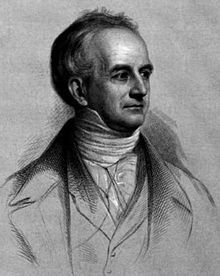Abbott Lawrence
| Abbott Lawrence | |
|---|---|
 |
|
| Member of the U.S. House of Representatives from Massachusetts's 1st district |
|
|
In office March 4, 1835 – March 3, 1837 |
|
| Preceded by | Benjamin Gorham |
| Succeeded by | Richard Fletcher |
|
In office March 4, 1839 – September 18, 1840 |
|
| Preceded by | Richard Fletcher |
| Succeeded by | Robert Charles Winthrop |
| United States Minister to the United Kingdom | |
|
In office October 20, 1849 – October 12, 1852 |
|
| Preceded by | George Bancroft |
| Succeeded by | Joseph R. Ingersoll |
| Personal details | |
| Born |
December 16, 1792 Groton, Massachusetts |
| Died | August 18, 1855 (aged 62) Boston, Massachusetts |
| Political party | National Republican and Whig |
| Relations |
Samuel Lawrence (father) Amos Lawrence (brother) Amos Adams Lawrence (nephew) |
| Profession | Industrialist, merchant |
| Religion | Unitarian Church |
| Signature | |
Abbott Lawrence (December 16, 1792, Groton, Massachusetts – August 18, 1855) was a prominent American businessman, politician, and philanthropist. He founded Lawrence, Massachusetts.
Born in Groton, Massachusetts, the son of American Revolutionary War officer Samuel Lawrence, Abbott Lawrence attended Groton Academy, (now Lawrence Academy at Groton.) Upon his graduation in 1808, Lawrence became an apprentice to his brother, Amos, as chief clerk in his brother's firm. On the conclusion of his apprenticeship, in 1814, the Lawrences formed a partnership, specializing in imports from Britain and China, and later expanded their interests to textile manufacturing. Initially called A. & A. Lawrence, the firm later was named A. & A. Lawrence and Co. It continued until Amos's death, and became the greatest wholesale mercantile house in the United States. It was successful even in the hard times of 1812-1815.
The firm did much for the establishment of the cotton textile industry in New England. In 1830, it came to the aid of financially distressed mills of Lowell, Massachusetts. In that year, the Suffolk, Tremont and Lawrence companies were established in Lowell, and Luther Lawrence, the eldest brother, represented the firm's interests there. When Amos retired from the business in 1831 due to ill health, Abbott became head of the firm. In 1845-1847, the firm established and built up Lawrence, Massachusetts, named in honour of Abbott, who was a director of the Essex Company, which controlled the water power of Lawrence, and later was president of the Atlantic Cotton Mills and Pacific Mills there. Many cite the Lawrence brothers as the founders of New England's influential textile industry.
...
Wikipedia
